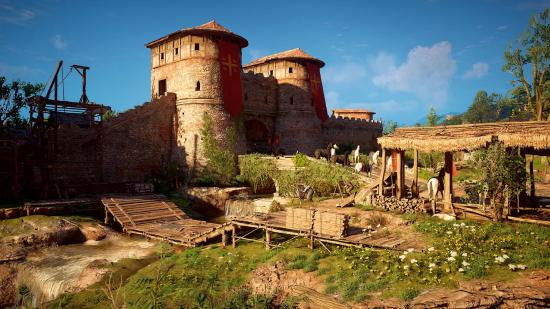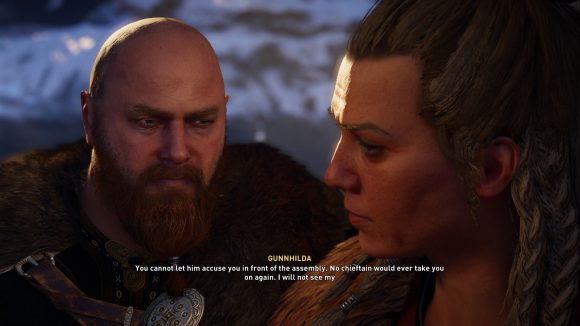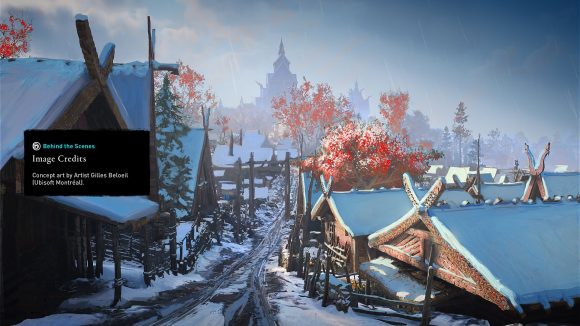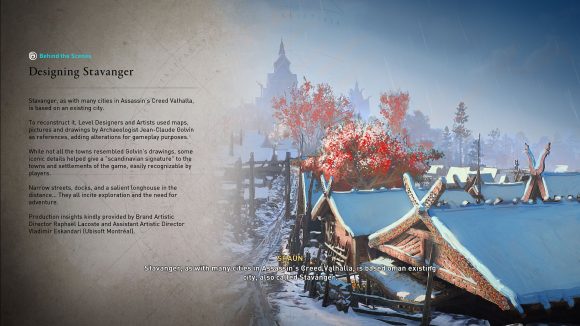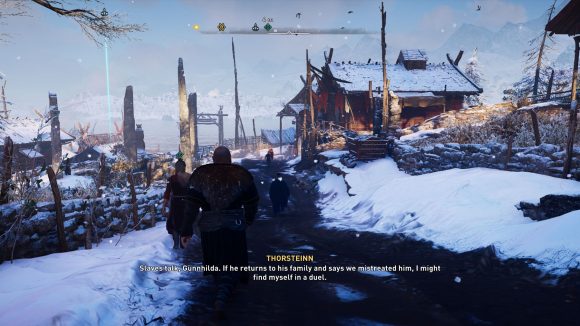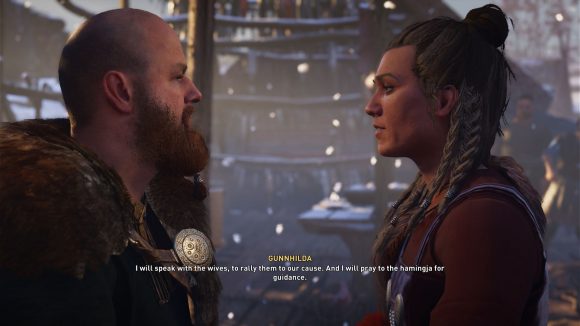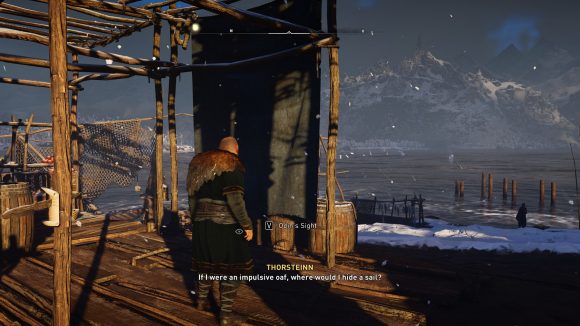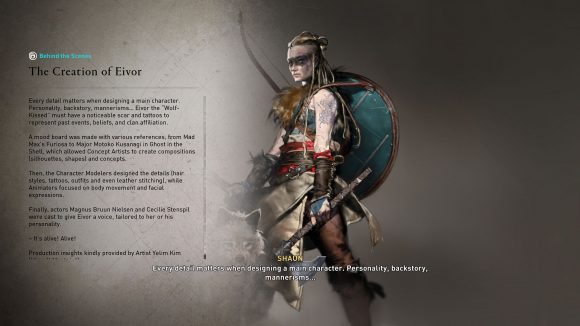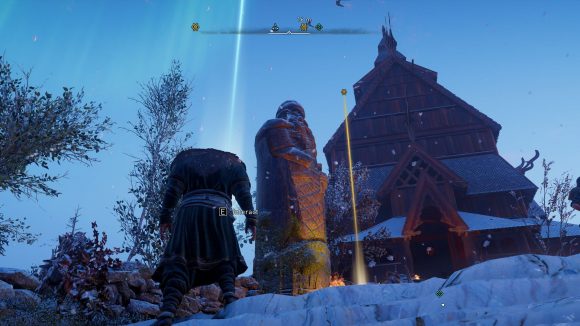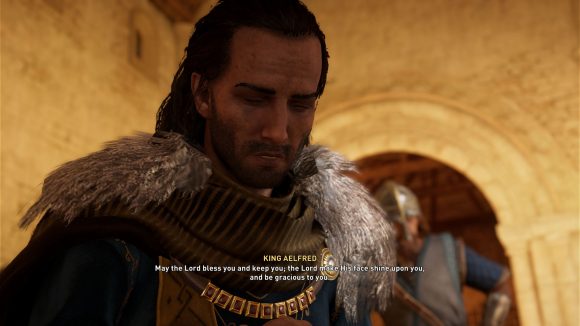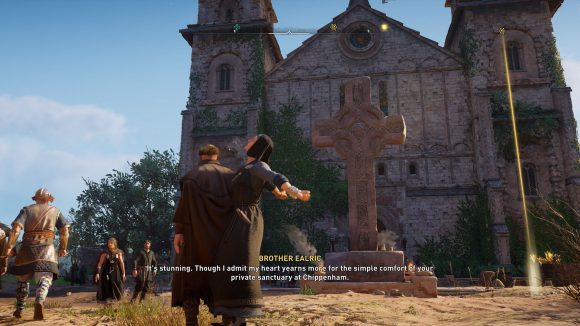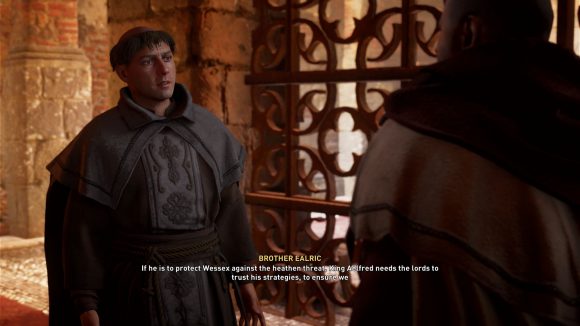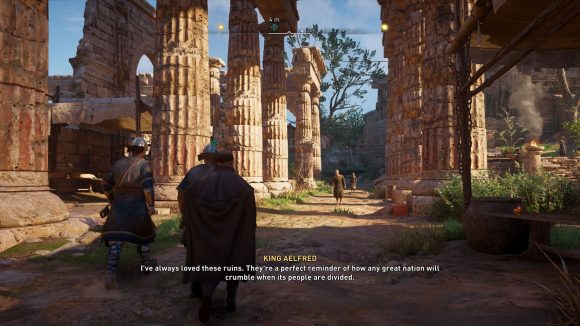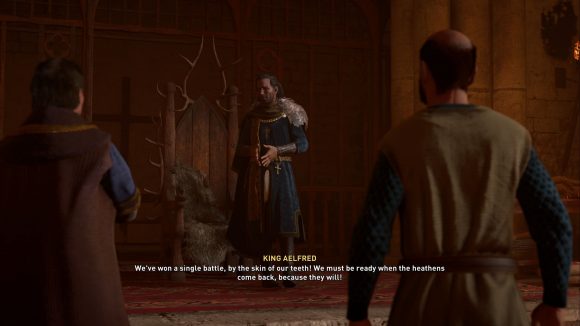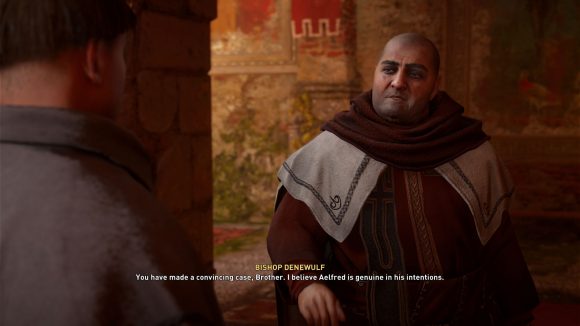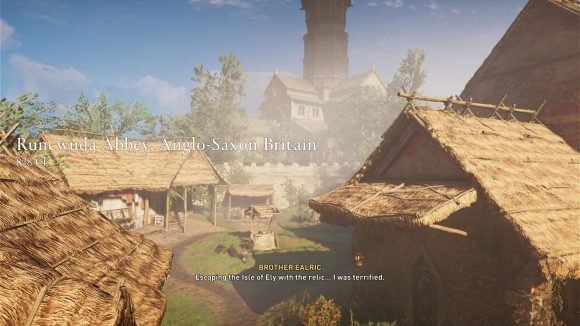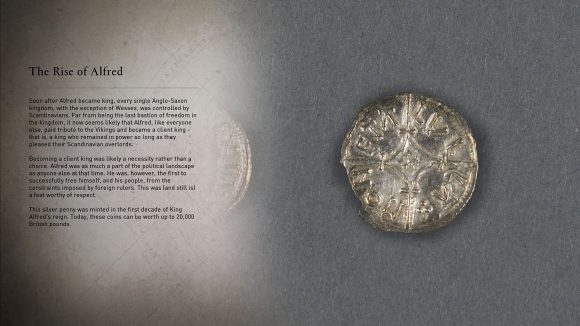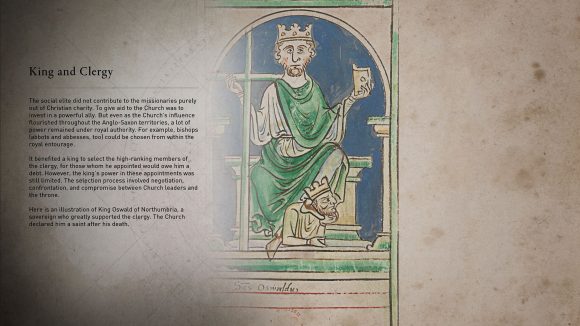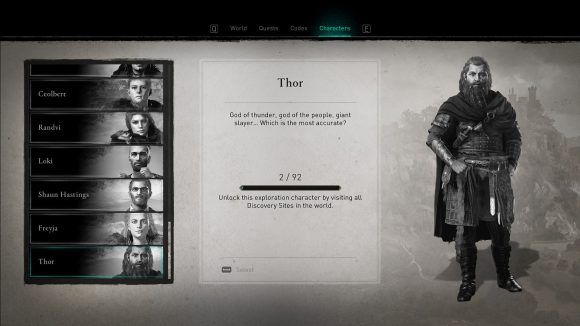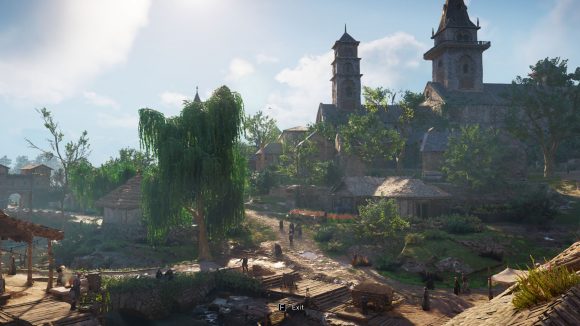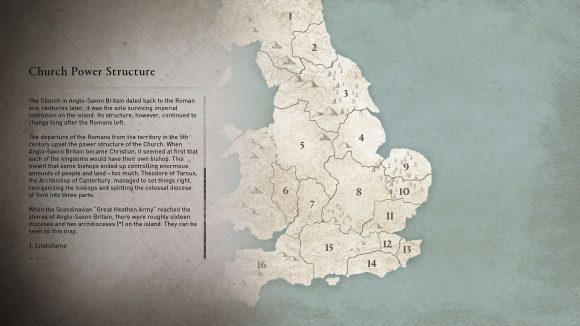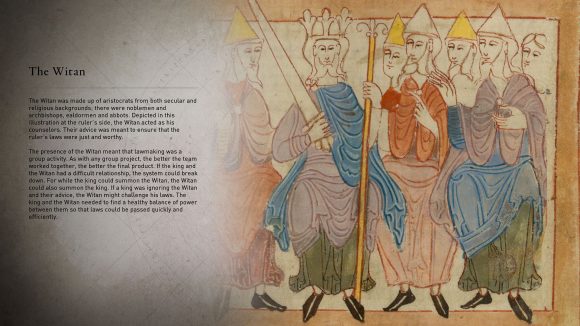My interest in history was catalysed by videogames. Thanks to Age of Empires, I was able to explain the etymology of the word ‘hoplite’ to my granny when I was ten years old. A dedicated edu-tainment experience has always seemed like a natural and worthy use of this medium, and especially of the meticulously researched worlds of Assassin’s Creed.
I wasn’t exactly sure what I expected from the Assassin’s Creed Discovery Tours, but I still expected a lot. Perhaps that’s why, in the event, I felt there was a touch of unrealised potential about them.
Discovery Tour: Ancient Egypt played like a digital museum exhibit. A slick-voiced narrator would simply talk at you while you walked around the pyramids or the port of Alexandria, like the audio blurbs that talk at you from display cases of ancient coins or rusted iron swords. It didn’t leave much scope for meaningful interaction with the world, which rather misses the point of being an interactive experience. Discovery Tour: Ancient Greece bookended these walks with appearances by period celebrities, such as Socrates or King Leonidas, who would discuss their lives in a slightly creepy past tense before wrapping things up with an easy pop quiz. It was better, but not much.
Ah, but Discovery Tour: Viking Age. Well. Now we’re onto something.
Gone are the artificial trails of light pulling you around the Acropolis. Instead, Viking Age behaves much more like a videogame, introducing four fully fledged characters to play, with quests to complete. Maxime Durand, Ubisoft’s director of world design and of the Discovery Tour team, explains that feedback from teachers is behind the decision to “push the formula even deeper, using gameplay mechanics that are really powerful for learning. So that’s how we set ourselves on envisioning Viking Age based on narrative and gameplay opportunities, rather than guided tours.” It also helps, he says, that the first two tours have reached millions of players – a success that’s taken Ubisoft by surprise.
You’ll step into the shoes of Thorsteinn and Gunnhilda, a pair of Norse merchants; a Saxon monk named Ealric; and King Aelfred himself. Across their eight quests you’ll experience their struggles, share their concerns, and help them achieve their goals – all crafted in consultation with historians for authenticity. “We wanted players to have more agency in their experience, and to care for the characters they’re going to play,” Durand says.
Viking Age begins with Thorsteinn, who needs to settle his affairs in Norway before sailing to England on a euphemistically named ‘business venture’. Schools are a prime market for Discovery Tour, so the game needs to achieve a child-friendly age rating. That means no violence, so don’t expect much depiction of the martial side of the Vikings. It does strike me as a pretty significant omission, but there’s a lot more to this culture than fighting, and it’s generally received much less attention.
The eight quests are presented to you in sequence and tell an overarching story, but you can play them in any order. After completing Thorsteinn and Gunnhilda’s first episode, which focuses on the importance of honour to the ancient Scandinavians and their customs for enforcing it, I skip ahead to Aelfred’s quest like the shameless fan I am.
Fresh from victory over Guthrum and the Great Heathen Army in the Battle of Edington, Aelfred’s mind turns to the future security of England – and to his own legacy. He proposes to build a series of strongholds that will give early warning of attackers, as well as provide a secure place for the people to take refuge. The Witenaġemot – an assembly of the most powerful nobles – is reluctant to approve the idea, so Aelfred asks the player, as Ealdric, to persuade the Church to take his side. I go chat to the local bishop, and pick from a number of dialogue options in a bid to convince him.
This format achieves so much. I walk and ride with Aelfred all over Winchester, so you’ll still explore historically significant locations, it’s just now you’ll do so in context. Discovery sites – pop-up information attached to landmarks like churches and castles – return, and I’m free to ditch Aelfred to check them out (he picks up right where he left off when I come back). The people of Winchester greet him as we pass, thanking him for his leadership. He even makes time to pray for the ailing mother of a little girl, reflecting his famous piety and compassion, while his scheme to outmanoeuvre the Witan by winning over the Church shows his cleverness and political acumen.
It’s a far better way to get a sense for his character than the stilted, didactic exchanges I had with Aspasia, Herodotos, and others in Ancient Greece. The events of the quest itself are illustrative of the relationships between the king, the Church, and the Witan, and new codex entries called ‘learnings’ are unlocked as I complete them, adding further background. Though these are, again, one-way lectures, they become far more engaging by arising in the context of solving a problem.
Teachers and educators continue to be excited by the possibilities of this mode. “It’s going to make a big difference, being able to explore environments in real time, in terms of being able to conceptualise them,” says Professor Ryan Lavelle of the University of Winchester, who consulted on the base game and on Viking Age. “It’s going to have an impact on our sense of the visual and kinaesthetic reality of the past, thinking about an environment as something that can be interacted with.”
Ubisoft is aiming to cover more than just history this time around, too, and touches on media literacy and game development. Where appropriate, tours will explain where the developers had to take some dramatic licence to fill in historical gaps, while a new category of discovery site delivers ‘Behind the Scenes’ information on the jobs and processes in making games. You can still roam freely outside quests to discover all this, and there’s a lot to be said for exploring Valhalla’s jaw-dropping world without any pressure or threat. You can unlock new avatars for free roam by playing the game and completing objectives, which is a neat little reward loop.
Related: Check out the best Viking games on PC
Viking Age is a big step forward for Ubisoft’s edu-tainment mode – the first Discovery Tour that comes close to delivering whatever it was I wanted when I first heard of the idea. I just wish there were more of it. The quests are all quite short; I complete Aelfred’s arc in a single lunch break. I suppose this is the trade-off for the more immersive approach, which has clearly required far more original dialogue and animation compared than previous iterations.
Discovery Tour: Viking Age is out today – click here to see exactly when – and is free for owners of Assassin’s Creed Valhalla.
